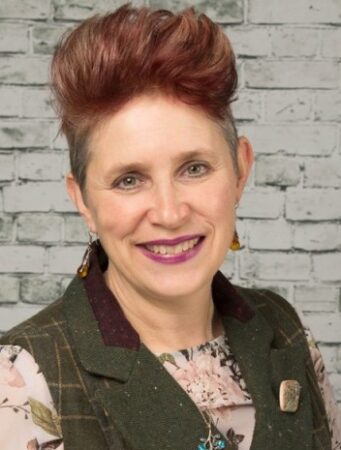Home News & Views Beyond Patients First
Beyond Patients First
Jilly Ireland, Professional Midwifery Advocate

I received a pack of nicely produced A4 ‘Improvement Insights’ from FoNS in the post the other day (‘Bump, Baby and Beyond’ – creative ways of designing antenatal preparation sessions in collaboration with women). It summarises the Patients First Programme project I was involved in for eighteen months from 2014 to 2016. During that period, I benefitted from collaborative learning with other teams in the workshops and from ‘living out’ the service improvement as it evolved with mentoring support from FoNS’ practice development facilitator, Jo Odell.
The experience validated a lot of the feelings and experiences I had from a long working life in the NHS. I have seen changes imposed without consultation with those the changes affected most and I have seen better service improvement which had an eye for sustainability and ongoing evaluation from all stakeholders, including users. The input and support we had from FoNS gave validation not only to the ‘feeling’ that this is the right and correct approach but also the evidence. A powerful double effect.
This has meant that the effect of being a participant on the Patients First Programme has carried on in my career and in my life away from work. I have been using creativity more. I have written a poem and lullaby based on the knowledge base around mothers’ wellbeing and foetal development (Ireland, Evans and Buisson-Lex, 2016) and how wellbeing in pregnancy can be addressed at least in part by introducing crafts (Ireland and Croucher, 2017). Having the bursary and workshops facilitated expansion in my knowledge in this area and my abilities to share and use it in a variety of impactful ways.
My current post as a Professional Midwifery Advocate involves supporting staff through restorative supervision. Our Head of Midwifery in Poole, Sandra Chitty, has allowed the role to evolve and hopefully become what our staff group needs. I have spent several months gathering information from the whole workforce and from service-users. Some examples of engagement activities are:
- ‘Whose Shoes?’ workshops, whereby staff from a variety of areas and disciplines and across different Trusts; service-users and user group representatives; providers (CCG) and others affected by maternity care issues have worked together to elicit the main issues requiring attention
- Sharing colleagues’ insights and working towards personal and group solutions at workshops during mandatory update days
- Breakfast workshops using ‘forum theatre’ to facilitate midwives’ learning around the new birth ‘de-brief’ appointment to be offered to each woman 21-28 days after their babies’ birth (RCM Better Births)
- Attending external training (e.g. motivational interviewing) and procuring bespoke maternity training for community midwives (to start May 2018)
- Developing a ‘birth afterthoughts’ service for women so that those who need it can come and discuss their experiences with an experienced midwife who may be able to ‘fill in gaps’ in their memories; make sense of what happened and the most frequent comment made in the evaluation form – have their feelings validated
- ‘Work afterthoughts’ service for staff – guided relaxation following update days (to start at the end of January 2018)
- Professional Midwifery Advocates across the South Coast have organised a multi-Trust working group so we can provide each other with support and share knowledge and particular expertise across the whole area
Currently I am preparing to calculate a whole staff measure of ‘self-efficacy’ which will form a baseline measure against which we can compare repeat results in 6 and 12 months’ time. The questionnaires will be filled out anonymously and a copy kept by each individual staff member and used to aid reflections for NMC re-validation and, in the case of non-midwife staff, for their development/appraisal discussions if they wish. The data will be used as evidence of staff support for CQC evaluations in future.
My current role requires and uses facilitation and engagement more than any other I have held. Being part of a FoNS programme has been fundamental in validating my beliefs and helping me to hone the skills required to turn beliefs into actions. Thank you FoNS!
References
Ireland, J., Evans, R., Buisson-Lex, R. (2016) ‘Bump, Baby and Beyond’: Participant-led Antenatal Sessions using Creative Collaboration. Journal of Health Visiting. Vol.4. No. 5. pp. 248–253 and reprinted in British Journal of Midwifery (2016) (Published Online: September 01, 2016).
Ireland, J. and Croucher, H. (2017) ‘Knitting Quitters’. The Practising Midwife. Vol. 20. No. 4. ePub. April 2017. Royal College of Midwives. Retrieved from: http://betterbirths.rcm.org.uk/ Accessed 19/01/18.
Comments are closed.

